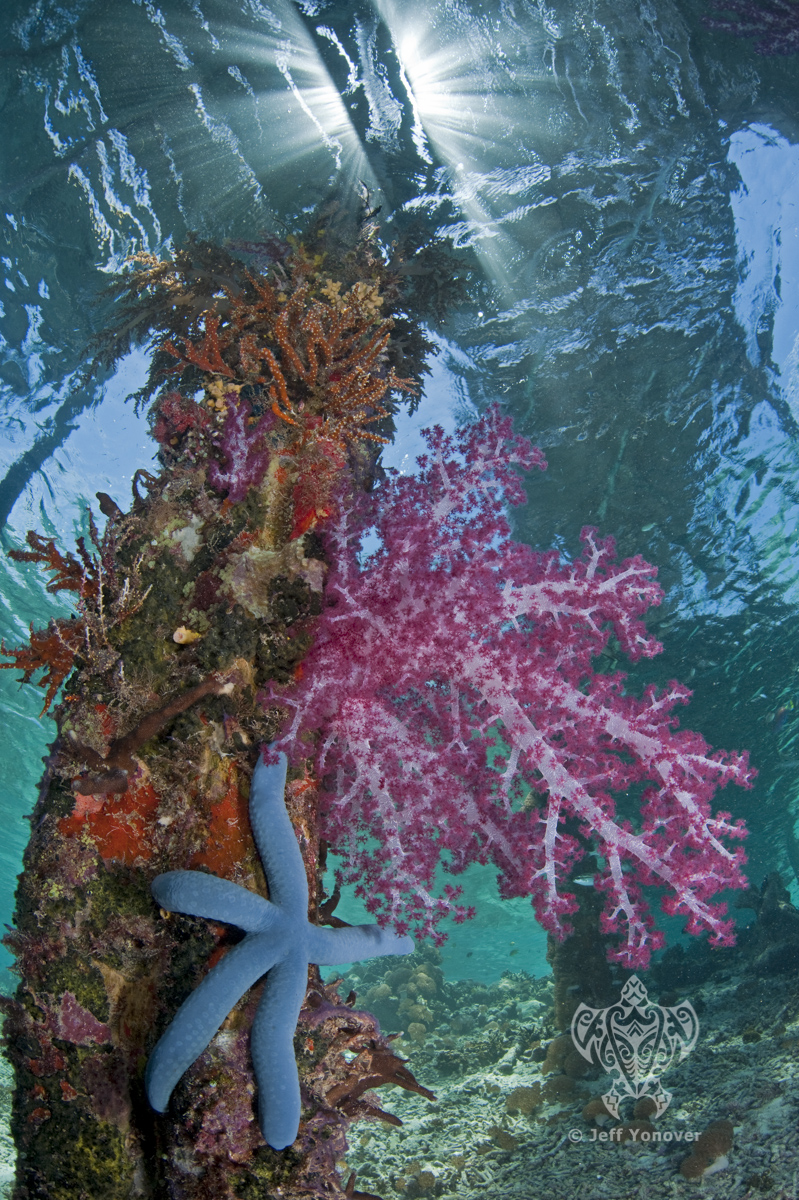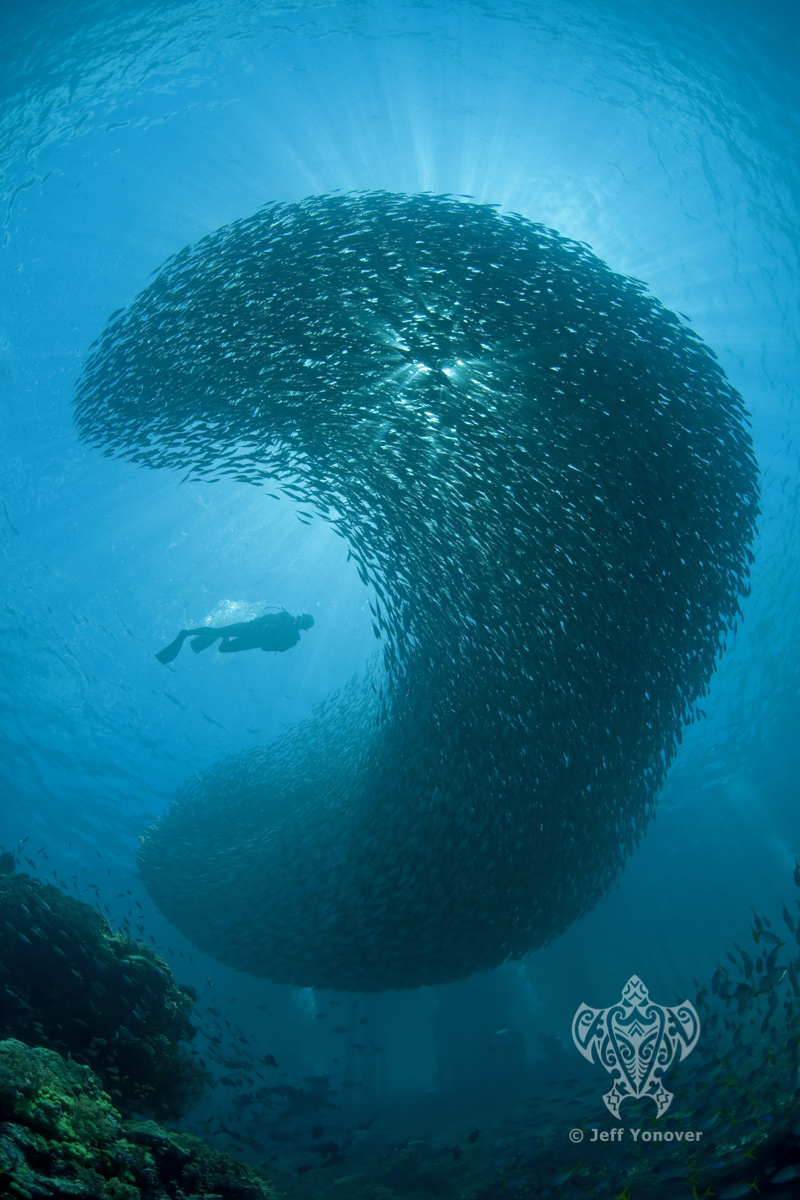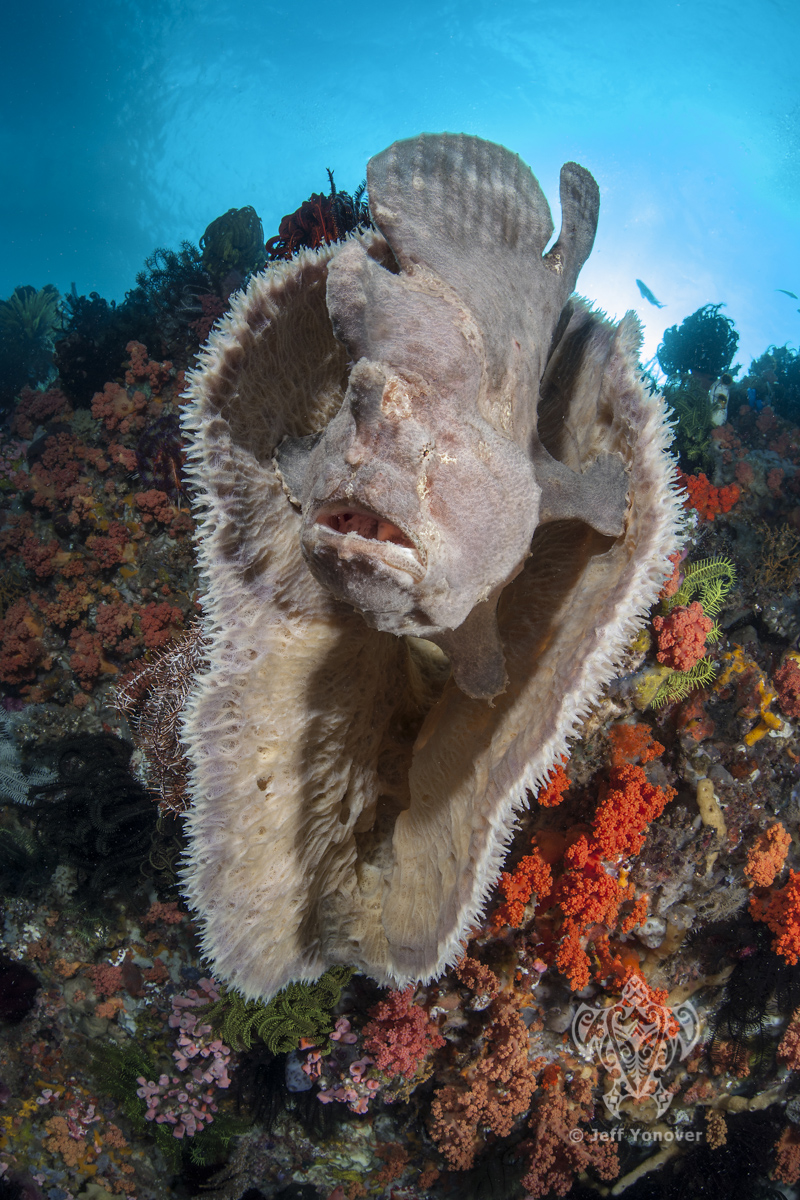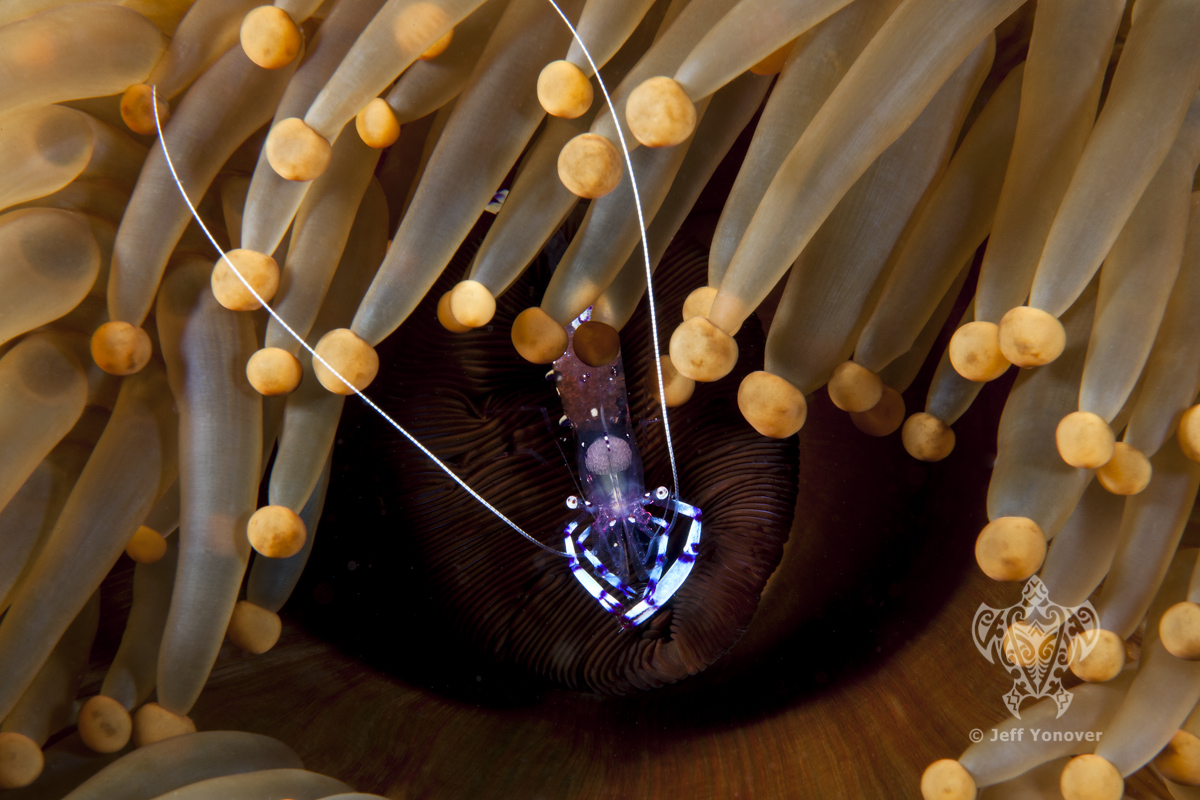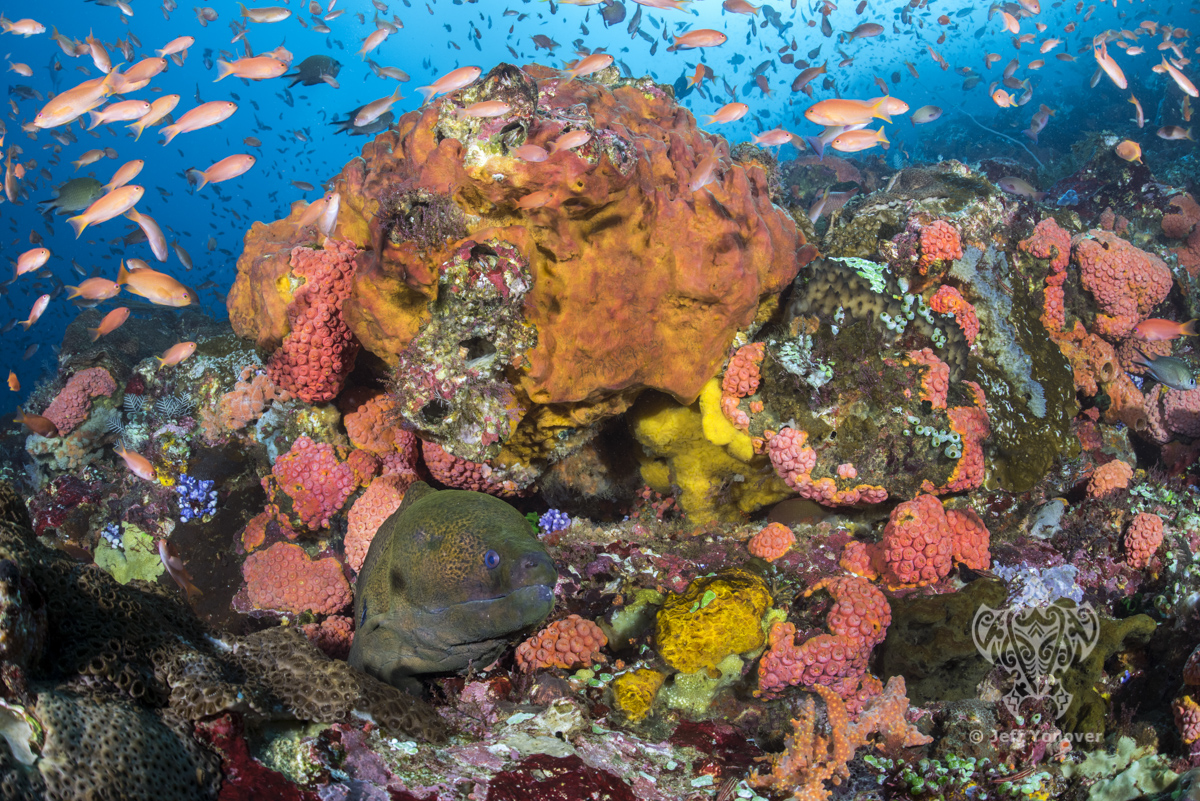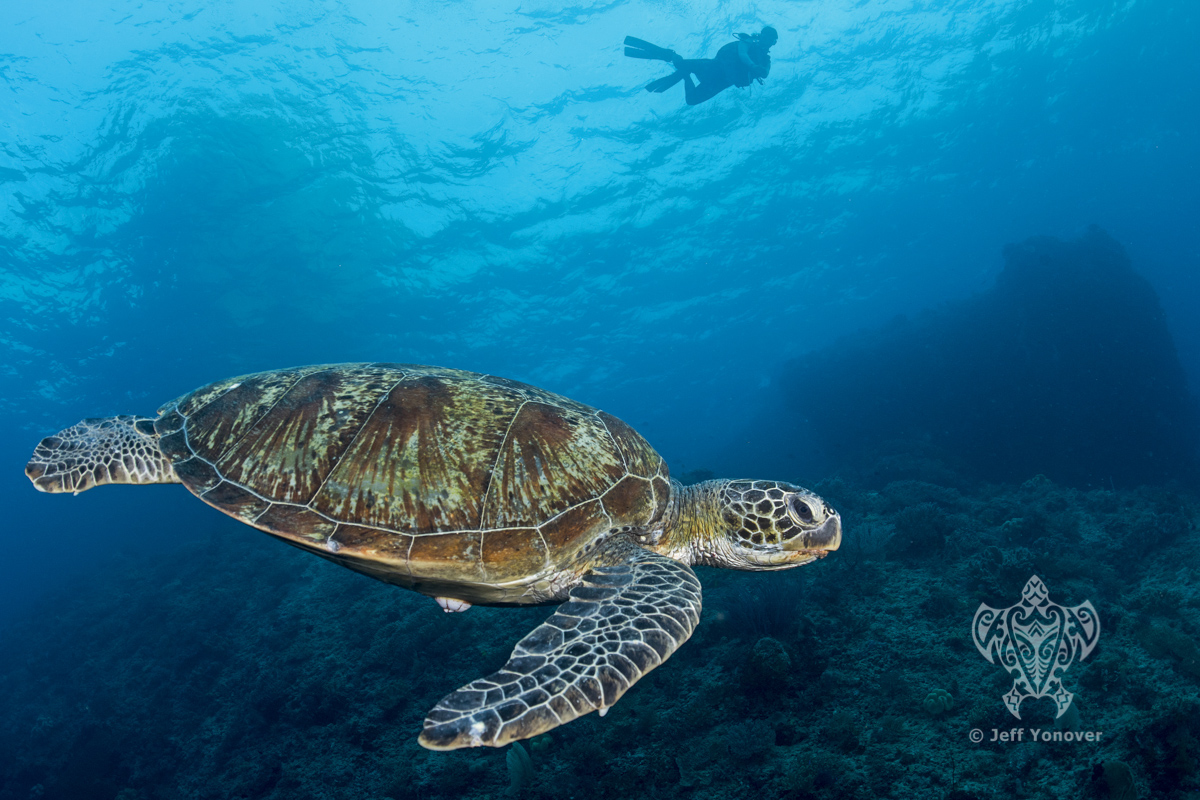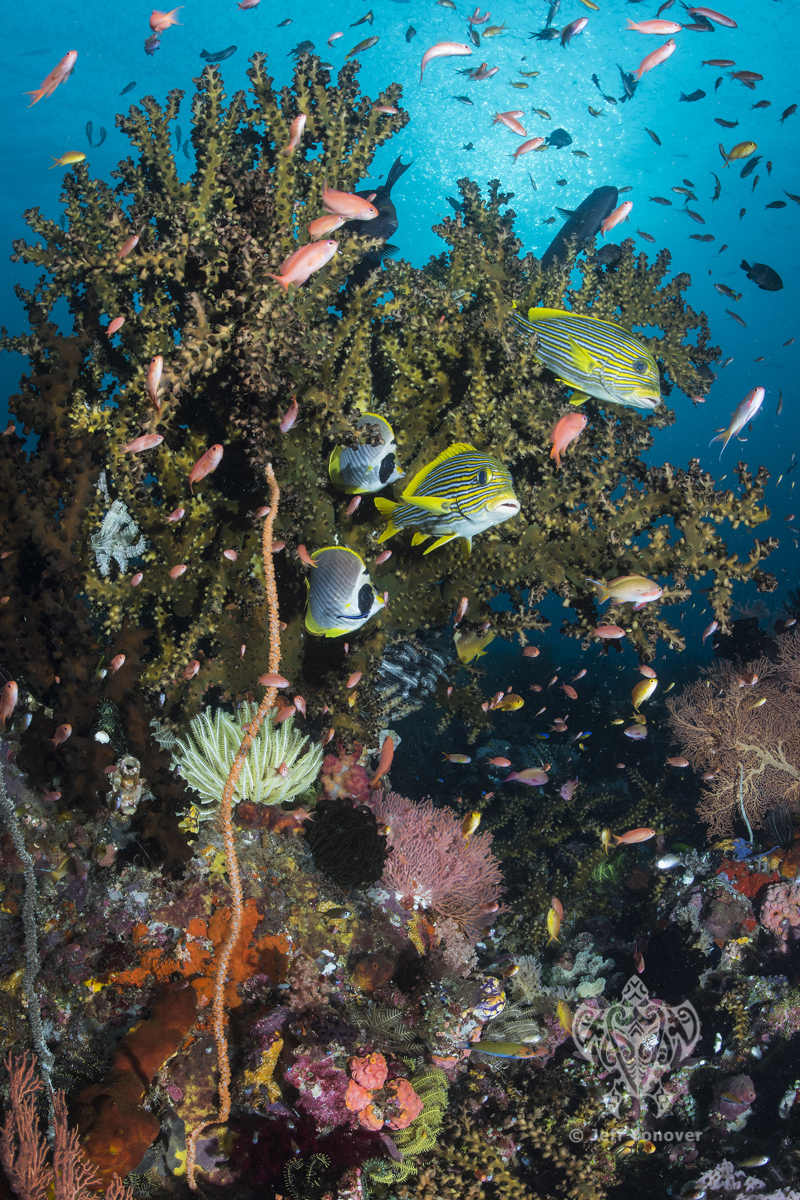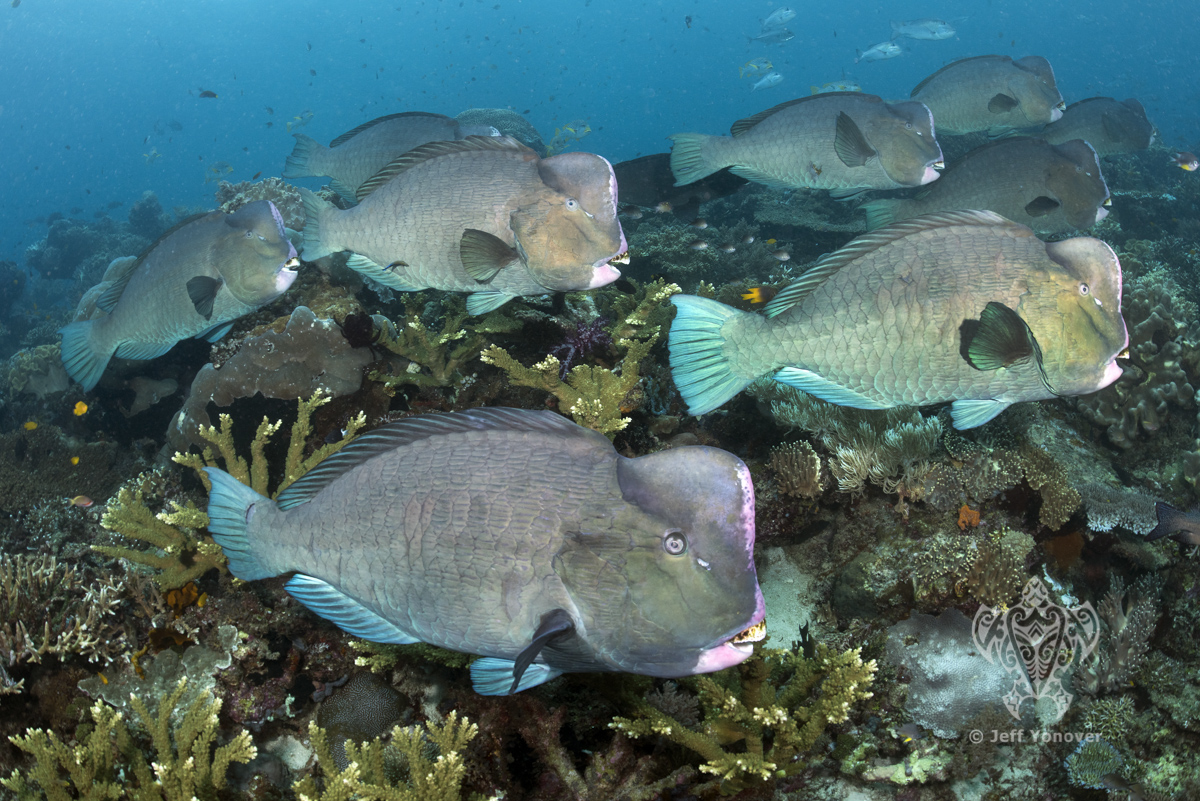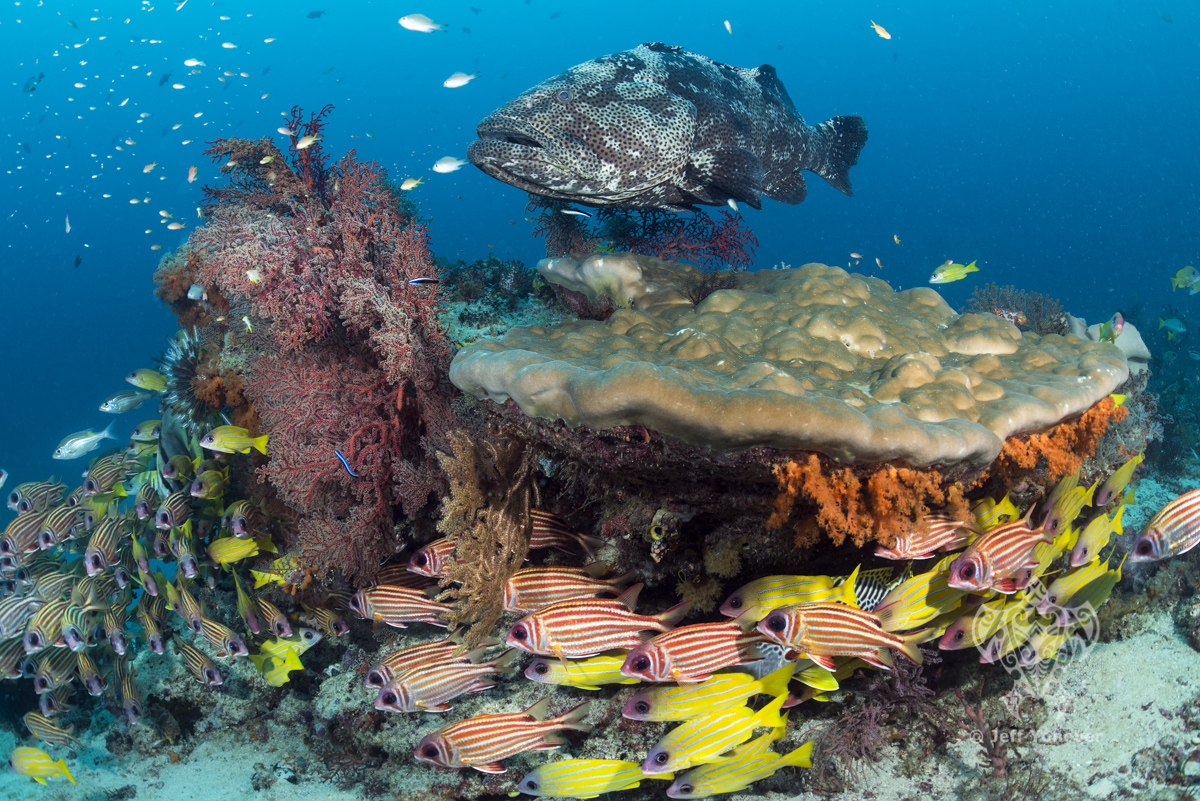Tell us a little about yourself.
I started diving in 1996, and have been unable to dive without a camera since my sixth dive. I live in Portland, Oregon, but most of my library comes from within the Coral Triangle, with its record high number of species of corals, fish, and invertebrates. Every time I return to the region, the biodiversity blows me away, which reminds me how important it is to protect these areas.
How long have you been an underwater photographer?
Since 1996.
What got you interested in underwater photography?
I was a keen amateur topside nature photographer, so when I finally got certified to dive, I couldn’t imagine myself diving without a camera — so much to see and photograph.
What’s your favorite style of underwater photography?
I love both macro and wide-angle photography, but I find that it’s easier to illustrate the story I’m trying to tell with wide-angle images.
Any favorite subjects?
I love teeming healthy reefs, schooling fish, sharks, cephalopods, and animal behavior.
Any favorite destinations?
Indonesia for reefs and critters; Bahamas for sharks. And of course, Cocos Island for full-on ocean wilderness.
What’s your underwater setup?
I’m currently shooting with a Nikon D810 in a Subal ND810 housing, with two Sea & Sea YS-D2 strobes.
Do you have any tips you can share with new underwater photographers?
Get in the water and shoot — as much as you can. With digital technology, you can make all the mistakes you want and keep shooting. Also, pay attention to the feedback from your camera, learn from it, and constantly improve. The more you’re in the water observing things and practicing your skills (including good buoyancy), the more likely that you’ll be prepared when the shot presents itself.
For prints of any of Jeff Yonover’s work, click here. To see his entire library, click here.


